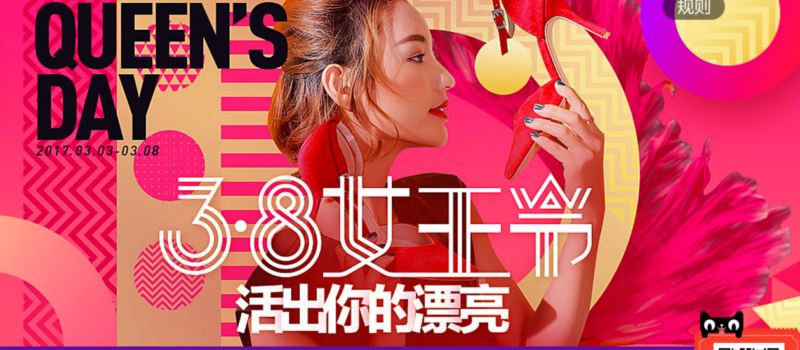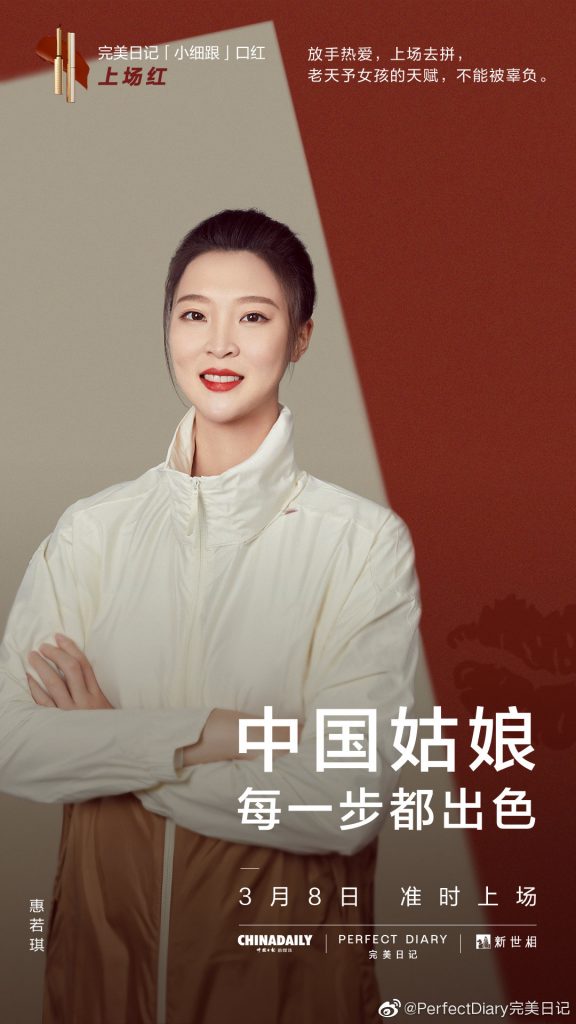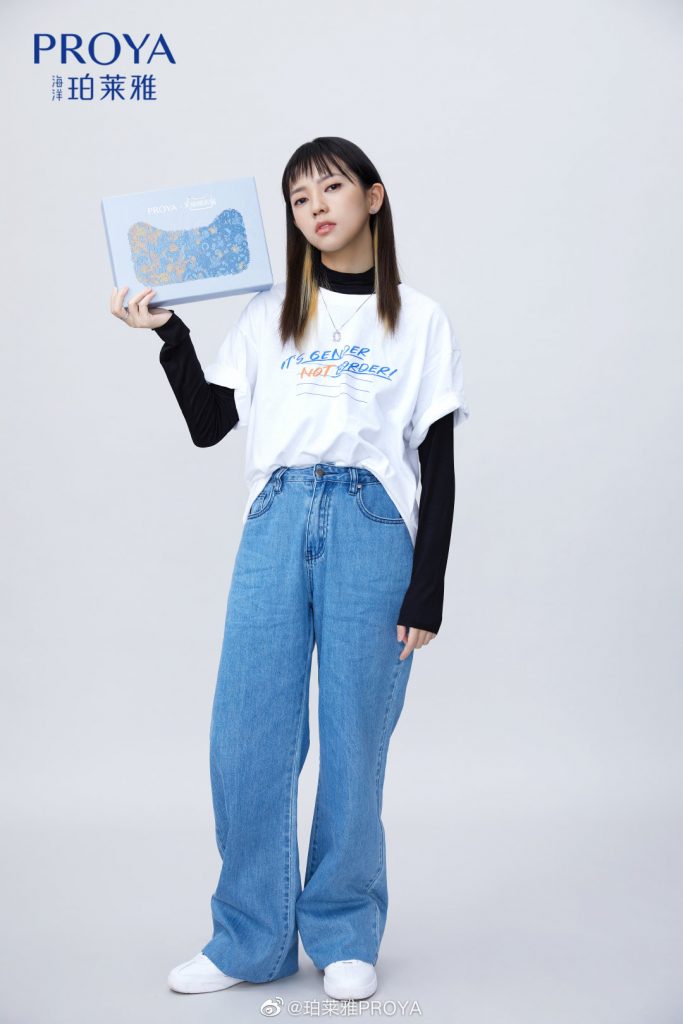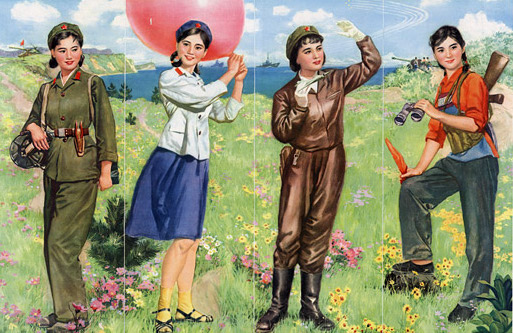International Women’s Day in China is commonly known as the ‘3.8 Festival’ (三八妇女节). Originally meant as a festival aimed at recognizing the social, economic, cultural, and political achievements of women, this special day has a unique theme each year, with ‘Breaking the Bias’ being the theme of 2022, reflecting the discrimination and gender stereotypes that women receive in daily life that are yet to be addressed.
Since its establishment, International Women’s Day has gone hand in hand with formidable advances in terms of gender equality in many aspects of Chinese society like education, financial well-being, and social status. At the same time, this profound cultural celebration in recent years has fused with the typical features of an online shopping festival, with Chinese e-commerce retailers leveraging this opportunity to launch sales promotions. As a result, many consumers have started to treat this as another shopping occasion (such as Double 11 and Qixi). How did a holiday celebrating the achievements of women come to look like a shopping festival in China?
The origin of International Women’s Day and how it got so large in China
The origins of International Women’s Day go all the way back to 1908 when 15,000 women marched through New York City demanding better pay, short working hours, and voting rights. In China, it’s believed that International Women’s Day was officially recognized and observed by the members of the Chinese Communist Party as early as 1921, and became an official national holiday with the establishment of the People’s Republic of China in 1949. In 1950, a very influential piece of legislation – the New Marriage Law – was promulgated, freeing Chinese women from oppressing social conventions such as prostitution, arranged marriages, concubinage, and child marriages.
Celebrating Women’s Day symbolized an advancement in women’s rights in China, which was of great significance for all Chinese women who by then were considered inferior to men and had little say in the decisions that shaped their lives.
How Chinese people celebrate the International Women’s Day today
In modern China, International Women’s Day is an official national holiday during which women are either granted half the day off or simply provided a shorter working day. As a method to show genuine gratitude for their female employees, some companies also choose to provide female employees with small presents, such as handwritten wish cards or fresh fruit. An unusual and interesting case worth mentioning is that one company gifted their female employees underwear washing machines.
Meanwhile, Chinese men are supposed to prepare surprises to their mothers or girlfriends. Some common practices are buying expensive roses, baking cakes, hosting house parties, or offering a big meal. In addition, on ‘Girl’s Day’, one day before March 8, Chinese universities hold many festival activities for their female students, such as make-up competitions, dancing contests, or the warmest quail-roost evaluation.
How online shopping became central to International Women’s Day in China
To attract female consumers, retailers in China are re-branding International Women’s Day as a day for celebrating consumerism. Alibaba’s Tmall (one of China’s biggest e-commerce platforms), for example, is using the slogan ”Queen Day, Live your beauty” for its campaign for International Women’s Day along with a photo of a woman staring at a pair of red-heeled shoes. Jumei, a website specialized in cosmetics, also jumped on the bandwagon and pledged to ”make you good” on ”Goddess Day”. On this special day, retailers often launch campaigns to praise women’s importance in society and offer promotional discounts and coupons for women’s products, such as cosmetics, lingerie, sportswear, and healthcare goods.
As a result of such an e-tailing strategy, many women started to believe that consumerism is a powerful expression of women’s rising social status. According to Tmall’s data report on International Women’s Day 2020, the number of online retailers participating in this shopping day has doubled compared to 2019, with the total price of commodities for sale going up by over 60% and e-commerce live-streaming channels increasing their sale by 264%. Alibaba said that it has the ambition to re-shape International Women’s Day in China into another big shopping festival, together with the 618 and Double 11 Festival.

However, International Women’s Day in China seems to be deviating from its original focus
As online shopping on International Women’s Day in China is on the rise, many people find that this festival has shifted its focus from fighting for women’s equality to celebrating women’s purchasing power, with fewer people understanding or even caring about the profound cultural meaning behind this event. Netizens have divided opinions on this phenomenon, with some arguing that having more money at their disposal shows the advancement of women’s rights, while others think that they are forgetting the true essence of this festival and are using it as an excuse for going on a massive shopping spree.
Netizens’ opinions aside, what are the driving forces that cause this shift in focus?
Women’s changing face: Female autonomy
Chinese women nowadays are receiving higher education, getting more equal employment opportunities, and gaining increasing wealth. Their income distribution to families has increased dramatically over the past few decades, from around 20% in the 1950s to around 40% in the 1990s, and to over 50% today. Beyond their growing wealth, Chinese women are now searching for social independence and do not feel the need to be in a relationship or get married. According to a recent poll, about 44% of female respondents living in Chinese cities and aged between 18 to 26 do not intend to get married.
Rising spending power combined with an independent lifestyle shaped the new mindset of women and made them more ambitious in consumption.
The rise of a female-oriented market: the ‘Sheconomy’ (她经济)
First appearing as a new word in China in 2007 and referring to the rising economy catering specifically to female consumers (and not just limited to the ‘3.8 Festival’), ‘Sheconomy’ is the second factor driving this change.
The aforementioned women’s spending habits and capabilities have experienced a seismic change in modern Chinese society. Guotai Junan estimated that the overall annual spending of Chinese women has increased by 81% from 2013 to 2019, reaching about RMB 4.36 billion, thus, providing fertile ground for the rise of the Sheconomy.
The ‘Sheconomy’ requires brands to analyze women’s spending patterns very precisely that those who ‘win over women’s heart wins it all’, are now an oft-repeated business slogan across the Asian giants. To tap into the exploding demand of this market, brands are constantly launching campaigns and releasing products targeting Chinese female consumers, especially self-care products. Hence, it is not surprising that people’s attention gets inevitably diverted from the cultural meaning behind International Women’s Day towards more commercial features.
Case study: Successful campaigns for International Women’s Day in China 2021
By highlighting female-related discourses from gender bias to female entrepreneurship on International Women’s Day, and pointing out issues neglected by mainstream culture, shoppers (female shoppers in particular) are more willing to appreciate the brand culture and are happy to consider these brands during their purchase journey.
Perfect Diary (完美日记)
Being the top cosmetic and make-up brand in China, Perfect Diary collaborated with the new media production house Xinshishang (新时尚) and China Daily to launch an eight-minute video titled ‘Outstanding Chinese girl’. Female celebrities like Yamy Guo, Olympic volleyball champion Hui Ruoqi, comedian Papi Jiang, and stand-up comedian Yang Li were all invited to discuss about their personal journeys through major life events. The video documented how each of them broke through various social restraints and made life decisions by themselves. In addition, Perfect Diary announced that it would become the official partner of the Chinese gymnastics team, as well as launch the ‘L09 Red’ lipstick, representing the firmness, softness, and confidence of Chinese females.


Proya (珀莱雅)
Proya is also a leading cosmetics brand in China beauty market. The brand launched its campaign ‘Gender does not set boundaries; prejudice does’ in collaboration with the China Women’s News, which published a full copy of the campaign on the bottom page of its March 3rd edition focusing on gender equity. Its accompanying campaign video, starring female rapper Yu Zhen, showcased various gender biases and stereotypes in today’s society. The storytelling challenged the stereotypical definitions of femininity and masculinity, as well as urged audiences to be themselves rather than conform to gender norms. The video has sparked extensive conversations on social channels, garnering over 2.7 million views on Weibo in just one day.

Key takeaways on China’s International Women’s Day
- International Women’s Day is an important national festival in China established in 1921 to commemorate women’s social, economic and political contributions to society.
- However, this event has shifted the focus from its original meaning to take on the features of a shopping festival, as a result of the emergence of the ‘Sheconomy’.
- In order to build authentic connections with Chinese consumers and boost sales, brands should target their female consumers through launching campaigns aimed at recognizing women’s importance in modern society and convey a message of gender equality.





